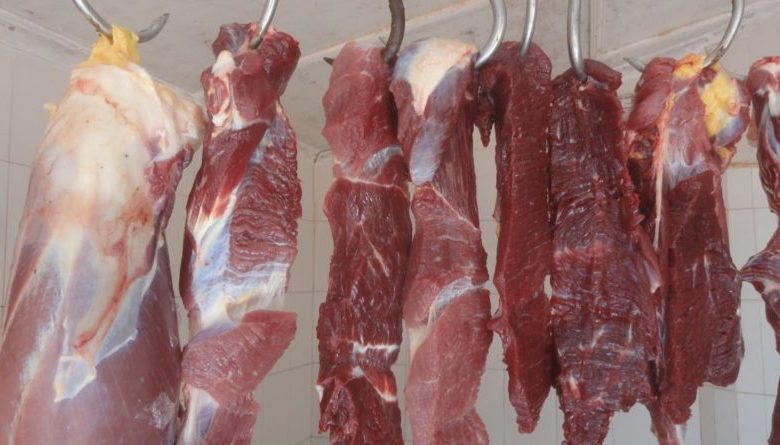
From cleaner to butchery owner: Kiyingi’s meat journey
Seven years ago in 2015, Muzafaru Kiyingi was a timid 18-year-old looking for any odd jobs to do, to survive.
Today at 25 years of age, he is a proud owner of three butcheries one each in Kyaliwajjala, Kira and Bulindo towns in Wakiso district.
The story of how he got there is intriguing and inspiring and his success proves that with determination and focus, one can achieve their dreams.
When he left his village in Sembabule district in late 2014, Kiyingi was unsure of what lay ahead.
In his village, he used to make bricks for survival but his income was inconsistent.
One day, one of his childhood friend who was living in Namugongo, Wakiso, told him that in Kampala and surrounding areas, there were a number of opportunities.
So he left and headed for Kampala to try his luck. He stayed with his friend in Namugongo.
A few months later, the friend told him that someone who owned a butchery in Kyaliwajjala, near Namugongo, wanted a cleaner.
“The butchery was big and had three workers. I had to be there very early in the morning to clean before they deliver the meat,” he said.
He would be paid Shs 5,000 per day for his work, money which while not enough helped him scrape through life.
Becomes a butcher
Kiyingi became a butcher by a combination of luck and misfortune.
He says whenever he would be through with the cleaning, he would hang around the hatchery and observe how the butchers cut the meat, weighed it and packed it for the customers.
He realized that the process was not rocket science.
“All you had to do was to learn the preferences of the customers. Some customers want fatty meat, others want a combination of fat and beef, others want ribs,” he said.
“You also have to know how to tell the quality of meat by looking at its texture.”
So one time in 2016 when one of the workers called in sick, Kiyingi volunteered to step in.
“But the owner at first refused because he thought I will not manage. But I convinced him and good enough, the other workers supported me. That is how I ended up in the meat business.
In the two weeks that he filled in for his sick colleague, Kiyingi impressed his boss who then decided to retain him as a butcher but transferred him to another branch in Kira town which was not very busy.
“When I was elevated from cleaner to butcher, my pay went up by Shs 3000 so I was earning Shs 8,000 per day,” he says.
After working for a couple of months and realizing that there was money in the meat business, he resolved to save half of the daily money with a view of venturing in the business.
“I had developed contacts in the industry and all I needed was a place to rent, a fridge, a weighing scale, a panga and I would be good to go,” he said.
So for one year (the entire 2017), he would save at least Shs 3000 per day which would translate into Shs 150,000 per month. After ten months he had Shs 1.5 million which was more than enough to start a small butchery.
“Leaving the job was not easy. My boss had a lot of trust in me because I was a hard worker. I was also trustworthy. I never stole any penny,” he says.
“But I had resolved to leave.”
At the start of 2018, he opened his first butchery in Kira, not far from the one he used to work.
Through word of mouth, he informed some of the customers he used to serve of his new business.
In a short time, his business had broken even as his customer base increased. This did not impress his former boss who he claims tried to sabotage him.
“One time, three health inspectors from Kira municipality came to my butchery and said they had come to close it down claiming it did not meet the hygiene standards. I took them around and two of them were satisfied with the standards but one insisted that they close me. I knew what I was doing. Later I learnt that they had been sent by my former boss,” Kiyingi says.
Profits
Within four months, Kiyingi says his business was thriving.
“I would make a profit of Shs 50,000 per day and this was a big lift. I decided that in the next four months, I will open another butchery in Bulindo which is about two kilometres from here,” he says.
He got a worker to manage the Kira butchery and took charge of the one in Bulindo. After some months, it also became profitable.
“I was excited by the money but I told myself not to lose focus. You see money can lead you to make decisions that are not necessary. So I stayed calm and decided to open another branch in Kyaliwajjala market,” he says.
In all his butcheries he specializes in beef, goat meat, offals, cow hooves, liver and minced meat.
Kiyingi’s customers comprise individuals, restaurants and eateries.
Kiyingi says cleanliness, good customer care, good selection of meat and consistency are the main keys to success in the meat business. One must also be trust worthy
The meat business is very sensitive because it involves food. Therefore, you have to know that no customer wants to come to a dirty butchery
Challenges
Not everything has been smooth for Kiyingi. He says the harsh economic conditions sometimes mean that many people forego meat leading to low sales which affects his business.
Kiyingi says it is also difficult to find trust worthy workers. Some, he said, come with the intention of stealing money. This, he says, can derail the growth of a business.
He says challenges arise when government announces animal quarantine measures in areas that have disease outbreaks. This leads to scarcity of meat, sometimes.
Advice to young people
Kiyingi advices young people who want to succeed in life to be hardworking and focused. He says they should have dreams of what they want to be.
“May young people think that life is easy. They expect to be given everything without working hard. This mentality must stop,” he says.



